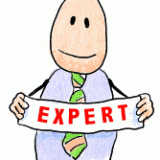Expert evidence in disability and personal injury lawsuits.
Lawyers often seek the opinions of medical experts in disability and personal injury lawsuits. The purpose of these engagements is generally to present evidence in relation to such important matters as:
• the underlying cause of the plaintiff’s injuries;
• the nature and extent of the plaintiff’s injuries and corresponding functional limitations, deficits or disability;
• any further treatment or rehabilitation initiatives that may need to be undertaken; and
• the prognosis for future recovery or symptom improvement.
Although opinions on such matters may vary from expert to expert, the ultimate purpose is to persuade the court/trier of fact to come to a specific desired conclusion on such matters.
In most disability and personal injury cases the most significant issue that lawyers need to address is the nature and extent of the plaintiff’s injuries/disability and the plaintiff’s corresponding right to compensation or benefits. Medical experts can fill an important role in these cases. This role is to assist the court in understanding the nature and extent of the plaintiff’s injuries, limitations and restrictions, and any further corresponding treatment recommendations that may be beneficial to the plaintiff.
The preparation of and reliance on expert reports for trial are generally governed by the Supreme Court Civil Rules (the “Rules”). In addition to other legislative guidelines, there are a number of specific rules that address the use of expert evidence during the course of litigation and at trial.
For the purposes of reliance on an expert report at trial, the author of the report must first be qualified as an expert in the field in which expert opinion evidence is being offered. An expert witness is generally considered to be a person qualified by their special skill, knowledge, education, training, or experience in a particular area. To be useful, and to meet the threshold test of admissibility at trial, the inference, opinion, or conclusion drawn by the expert witness must be squarely within the area of the witness’s particular area of expertise. The court or the trier of fact must also require the assistance of the expert to draw the correct inference.
With the amendments of the Rules in 2010 a number of important elements were introduced:
• a certificate is required that the expert is aware of his or her duty to assist the court and not be an advocate for any party;
• the instructions provided to the expert;
• the “reasons for the opinion”, including:
a) the factual assumptions on which the opinion is based;
b) a description of any research conducted that led to the opinion (if applicable); and
c) a list of every document relied on in forming the opinion.
Obtaining the proper expert opinions is an important part of representing a plaintiff in a disability or personal injury lawsuit. It is a complex task, and one that requires a great deal of skill and knowledge. Jan Fishman is a Vancouver Lawyer with the skill and knowledge you need to obtain the best expert evidence. Contact Jan Fishman and put his experience to work for you.





